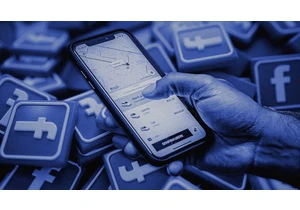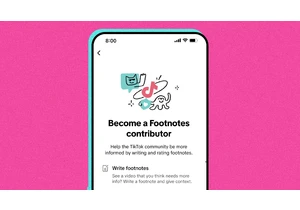This article is about one of the honorees of Fast Company’s first Next Big Things in Tech awards. Read about all the winners here. On a Sunday afternoon in Seoul in October, the K-pop sensation BTS took to the stage in front of hundreds of millions of fans for their latest show, Permission to Dance Onstage. But the audience that turned up to watch the seven sing and dance wasn’t in the stadium where the group was performing. They were in their homes, in dozens of countries around the world, streaming the event live on their phones, laptops, and computers. Far from being a passive, lean-back experience, fans were showing their love for the charismatic, coiffed boy band by throwing up stickers on the screen (fireworks, hearts); virtually applauding them via a “cheer button”; and weighing in with comments in a live chat, which included people chiming in from all over the world with reactions and purple heart emojis. Before the show’s encore, fans chanted by typing “BTS” in the comments over and over again. The multi-screen format of the show meant that viewers could choose to home in on individual performers or enjoy wider-lens shots of the group’s synchronized choreography. According to HYBE, BTS’s management company, the show amassed viewers in 197 countries around the world. HYBE has not disclosed how many viewers the show attracted, but a similar BTS concert in late 2020 drew nearly a billion viewers in just as many countries. That’s 10 times the number of people who tuned into the last Super Bowl. Even more impressive, both concerts streamed without any major glitches, despite the enormous volume of concurrent streams during the shows’ runs, and the varying levels of watchers’ internet speed around the world. The shows were made possible by Kiswe, the cloud streaming technology company that has spent nearly a decade perfecting its live streaming platform and tools, as well as thinking deeply about what fans want out of their virtual experiences. According to CEO Mike Schabel, the process has involved its share of agita. [Photo: courtesy of Kiswe]“Live-live is a different level of anxiety than VOD live,” he says. “Because with the latter, which a lot of people do, you can test and test and test and test. When it’s live-live, it’s live. And we are massive scale to an audience that has very high expectations of an amazing experience to see their band. We want to deliver that.” As IRL as possible Founded in 2013, Kiswe offers a turn-key, interactive video platform to entertainment companies and media rights holders—essentially anyone looking to turn a live event into a digital experience that aims to feel as IRL as possible. Kiswe gives partners the tools to broadcast their event as well as handle front-end ticketing, piracy management, and customized fan engagement tools. The platform has evolved to be able to stream mass audiences in 4K video, a process that involves taking in fast-moving lights and action, and rendering it all into a precise, high-resolution video stream.
Beyond BTS, Kiswe has powered shows by Justin Bieber and Culture Club, and has partnered with sports leagues like the PGA and FIFA to live stream games. During the pandemic, when the NBA was playing to empty stands, Kiswe live-streamed games, pre-game warmups, and half-time shows. All of these virtual events are built around fans with the goal of “making them feel heard,” Schabel says, “and giving them the tools with which they can contribute. “The audience at home is very, passionate,” he goes on. “They might be yelling, they might be screaming at the TV. But if nobody hears them, they don’t feel like they matter. If you’re not heard, you feel like a ghost.” This realization led to a series of features that Kiswe has folded into its platform over the years, including the chat feed and cheer button. “Think of it as an applaud button,” Schabel says of the latter. “You smash on that cheer button and then what happens is we surface that or render that as a live, global map showing the cheering of the audience around the world with the volume of cheering based on the number of people. “It’s one thing when you’re sitting in your room watching your digital screen. It’s another when you realize you’re part of people in 200 countries cheering. All of a sudden it becomes a global event.” Performers also engage in the virtual-ness of the event. Schabel recalls how during the Culture Club show in November of 2020, Boy George and the band “were aware that this was about performing to a digital audience, a remote audience. Members of the band were given devices and jumped into the digital audience chat and even responded to fans.” For its sports streams, Kiswe also introduced a button that allows viewers to take five-second selfie videos and share them with the rest of the audience. The videos are sent to Kiswe, which then moderates them (inappropriate content is cut) and streams them back into the broadcast via what Schabel calls a “fan cam.” The idea for the innovation came during the pandemic, when some sports leagues were allowing a limited number of fans to sit, socially-distanced, in stands. “If you get 50 people that have to sit there for two hours on camera, we realized, that’s not inclusive,” Schabel says. “If we have a million people watching, a million people want to show up and be seen. How do we do that?” [Photo: courtesy of Kiswe]With the pandemic waning, Schabel remains confident there is still a huge appetite for communal, virtual viewing, particularly when fans are given the opportunity to engage. “Thanksgiving is coming up,” he says. “You’re going to have everybody watching the various football games. Take a look around the room and see how many people are actually watching the game versus doing everything else on their phones”—like posting comments about the game on social media or chatting with friends about it. “So I think what we’re doing is, we’re capturing the imagination of so many people who have been armchair quarterbacks and who have sat on the sidelines and haven’t been heard. It’s a pent-up demand.”
Inicia sesión para agregar comentarios
Otros mensajes en este grupo.

A new watchdog report uncovers Facebook groups quietly fueling a black market fo

A software application called Interview Coder promises to help software developers succeed at technical job interviews—by surreptitiously feeding them

Amid tariff whiplash and the rejuggling of global trade, GE Vernova’s CEO Scott Strazik is finding a way to stay “relentlessly optimistic.” Strazik returns to the Rapid Response podcast to share h

Tesla‘s electric-vehicle registrations in California dropped 15.1% during the first quarter, industry data showed, signaling an

TikTok is launching its own version of community notes on the platform, called “Footnotes.”
The crowd-sourced approach to moderation, where users add additional context to p
MrBeast has again defended his philanthropy‑as‑content, clapping back at critics who say he is “only in it for the views.”
On April 13, in a post on X, Jimmy Donaldson—better k

Meta CEO Mark Zuckerberg once considered separating Instagram from its parent company due to worries about antitrust litigation, a
